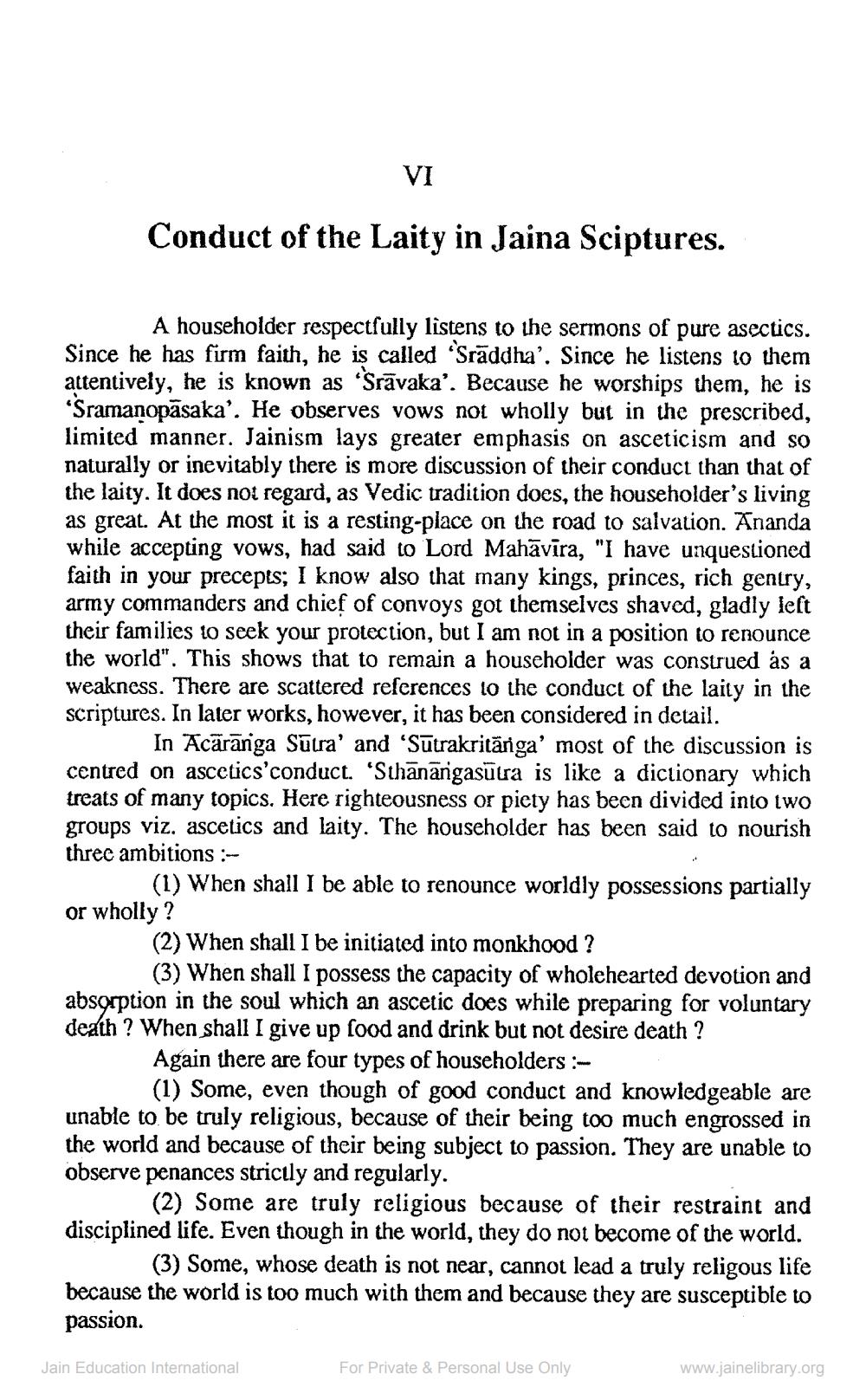________________
VI
Conduct of the Laity in Jaina Sciptures.
A householder respectfully listens to the sermons of pure asectics. Since he has firm faith, he is called 'Sraddha'. Since he listens to them attentively, he is known as 'Srāvaka'. Because he worships them, he is Sramanopāsaka'. He observes vows not wholly but in the prescribed, limited manner. Jainism lays greater emphasis on asceticism and so naturally or inevitably there is more discussion of their conduct than that of the laity. It does not regard, as Vedic tradition docs, the householder's living as great. At the most it is a resting-place on the road to salvation. Ananda while accepting vows, had said to Lord Mahāvīra, "I have unquestioned faith in your precepts; I know also that many kings, princes, rich gentry, army commanders and chief of convoys got themselves shaved, gladly left their families to seek your protection, but I am not in a position to renounce the world". This shows that to remain a householder was construed as a weakness. There are scattered references to the conduct of the laity in the scriptures. In later works, however, it has been considered in detail.
In Acaranga Sūtra' and 'Sūtrakritāniga' most of the discussion is centred on ascetics'conduct. 'Sthanangasūtra is like a dictionary which treats of many topics. Here righteousness or piety has been divided into two groups viz. ascetics and laity. The householder has been said to nourish three ambitions :
(1) When shall I be able to renounce worldly possessions partially or wholly?
(2) When shall I be initiated into monkhood ?
(3) When shall I possess the capacity of wholehearted devotion and absorption in the soul which an ascetic does while preparing for voluntary death? When shall I give up food and drink but not desire death?
Again there are four types of householders :
(1) Some, even though of good conduct and knowledgeable are unable to be truly religious, because of their being too much engrossed in the world and because of their being subject to passion. They are unable to observe penances strictly and regularly.
(2) Some are truly religious because of their restraint and disciplined life. Even though in the world, they do not become of the world.
(3) Some, whose death is not near, cannot lead a truly religous life because the world is too much with them and because they are susceptible to passion.
Jain Education International
For Private & Personal Use Only
www.jainelibrary.org




